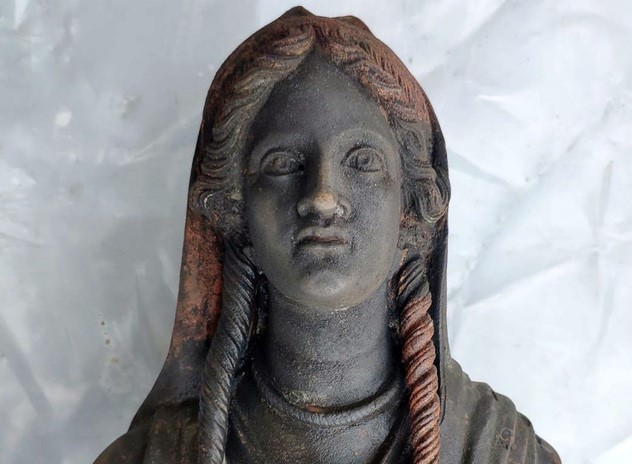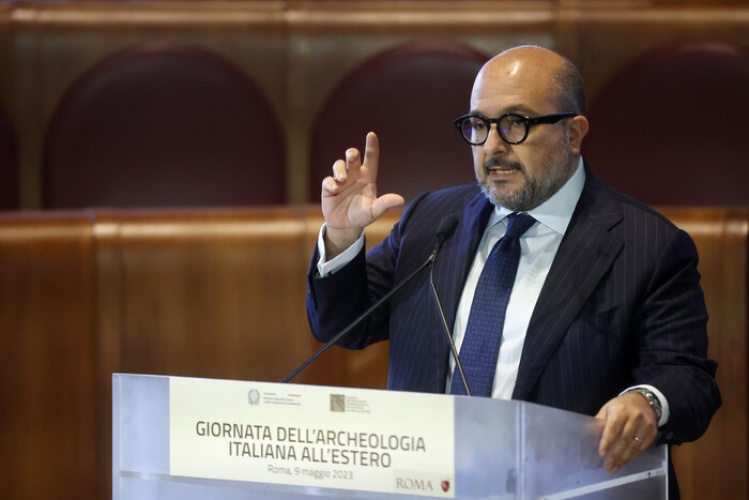“In archaeology we find our roots, our identity,” Sangiuliano said.
“It is a piece of the Italian image that we want to project to the world,” he continued, praising the work of archaeologists.
The stunning collection of ancient Roman bronze statues discovered at a Tuscan spa last year, have been likened to the world-famous Riace Bronzes.
They are to go on tour around Italy before being provided with a permanent site at the spa town of San Casciano.

The Riace Bronzes, ancient Greek warrior statues that are one of the paramount sculptural achievements of the ancient world, were also transported on a sell-out tour of Italy, before being placed in a permanent home in their native Reggio Calabria.
Restored and assembled in an unprecedented operation, the ‘bridal carriage’ found two years ago at Pompeii in the portico of the Villa di Civita Giuliana, with its incredible bronze and silver decorations, has come back to life after 2000 years.
Saved by a hair’s breadth from tomb raiders who had been hunting it for years, and who had almost found it by digging numerous tunnels in search of the treasures from the luxurious villa on the outskirts of Pompeii, the carriage, which the Romans called a ‘pilentum’, was known almost exclusively from the images of mosaics and bas-reliefs and the accounts of ancient sources, Livy, Virgil, Claudianus, who linked it to female cults, describing its splendour and comfort.

“Extraordinary work has recovered an artifact that is unique in the world,” the culture ministry’s director of museums Massimo Osanna said last month.
Sangiuliano said a monetary value could not be put on the importance of archeology.
“There is not always economic satisfaction, and everything must be compensated for by the passion and civic commitment that is put into this activity,” the minister said.
“A lot of time has passed since (the founding of the Italian Archaeological School in Athens in) 1909, but the spirit of that era lives on,” he concluded.
The bridal carriage is now on show in Rome at Diocletian’s Baths.
ANSA











